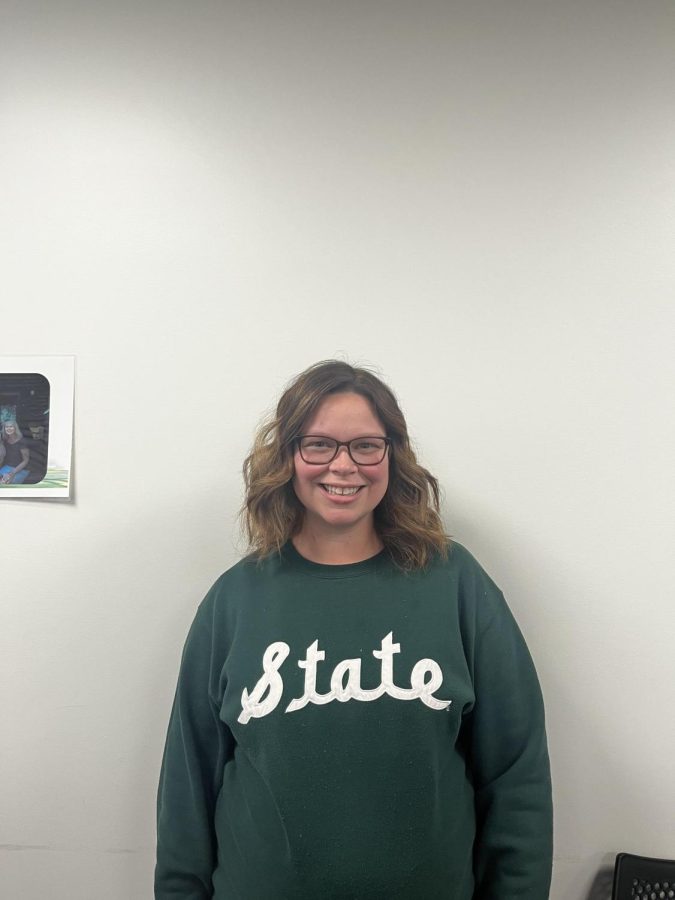Are You Ready for College?
Are You Ready for College?
Lex Hudson
Students often wonder, how far should I be in the college process at this time? Should I be applying for scholarships? Am I ahead of the game? Am I behind? If so, what steps can I take in order to get where I’m supposed to be?
The college process is different for all students, each has different factors that contribute to their education in high school. Some students try to get ahead with programs like middle college, dual enrollment, and AP classes, yet others might not choose to get ahead with these programs, or they might choose not to go to college at all. Regardless of where students are in the high school process, there are steps that need to be taken in order to facilitate the college process.
High schools want to offer support for those who are planning on receiving an education after high school. A good resource students have at Wyoming High School is the college guidance counselor, Mrs. Drayton. As the office described her, Mrs. Drayton specializes in “everything college,” so she is able to answer all of the questions related to what education steps upperclassmen need to take.
For seniors, the first thing that college-bound students need to do is apply. For most colleges, applications open up as soon as September, if not sooner. Although colleges generally do not have an application deadline, some scholarship opportunities are only available to those who have completed their applications early enough to view those opportunities. Competitive scholarships are normally introduced at the beginning of the application process, and the majority of them are only open for applications through December or January, so it is important to apply early.
According to Mrs. Drayton, scholarships are important. “Scholarships are important because they can fill in the gap between what you receive through FAFSA and what the colleges offer you,” she said. “They are unlimited, so there’s no cap to private scholarships.”
The opportunity to compete in competitive scholarships, among other opportunities, can improve the chance of earning a major scholarship or joining a new community. Those interested in getting a “head start” in opportunities with a preferred college should apply to their list of colleges as early as possible. This also goes for scholarships: consistently apply to scholarships throughout high school and college, even if they don’t have anything to do with merit or accomplishment.
Some scholarship opportunities are not available until college, so it’s important to keep applying, even if the cost of college is almost or totally covered for some students. Private scholarship money can cover the cost of student resources, textbooks, education, food, personal products, clothing, and other necessities, so it’s important to take a risk and apply to as many scholarships as possible.
Mrs. Drayton encourages students to continue to seek out scholarships, even after they finish high school.
“Make it a habit to apply to a few scholarships, once a month, until you finish college,” she said.
At this point, seniors should have also completed their FAFSA form. Some insight on FAFSA: for those who are in need of financial aid, the federal government, the state government, and the colleges that are registered on the FAFSA form can offer grants in order to help pay for college. For a lot of students, FAFSA can be really helpful and make up the difference in what isn’t covered by scholarships.
While that covers the steps seniors should be taking, the junior class seems to be the most perplexed about what they should be doing. Let’s face it, there is not a whole lot of direction and information for juniors.
Juniors, I understand the frustration. From personal experience, when I was a junior, I kept asking, “What early steps can I take in order to look for schools and apply for scholarships?” The majority of adults told me, “Oh, you don’t need to worry about this yet! Scholarships and applications aren’t open until senior year!” Part of this information seems to be incorrect because there most definitely are steps juniors can take at this time.
As far as scholarships, there are plenty of small scholarships that are open on sites, like FastWeb, that are applicable starting freshman year. Although juniors don’t necessarily have to jump into the scholarship application process now, it’s never a bad idea to be proactive. The earlier students start applying for things, the more opportunities and chances they will have to receive scholarships in the long-run.
At this time, for juniors, the most important thing to do is to explore job shadowing opportunities and visit different colleges to get a general idea of what they want their career path to be.
Field trips pertain to everybody, not just those who specifically want to attend college. “Even if you don’t think you’re going to college, go on a field trip anyway,” Mrs. Drayton said.
The opportunity to go visit different job sites and colleges can be helpful in the question-answering process and seeing how people live can be a whole new experience, especially if someone hasn’t been on a college visit before.
During junior year, college fairs and job-shadowing opportunities are important because students can gather information about different fields and make contacts.
For a junior recap: nothing is required at this time, but for those who want to get ahead, check out some raffle scholarship opportunities as well as going on as many college visits as possible.
Regardless of wherever anyone is in the college and career process, there is still time left, so there is no need to stress right now. Trust me, it’s important to take the important steps now, so there is no reason to be flustered down the road. It feels a lot better once something has been accomplished.
If anyone needs help at all in the application process, teachers and guidance counselors are there to help with anything they can provide. This applies for both high school and college faculty. Take initiative, make yourself known, and reach out to them. Faculty is there to support students who are struggling.
A closing quote from Mrs. Drayton, “At first you don’t succeed, ask, ask again!”





